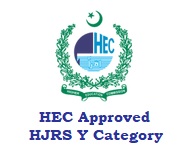Parliamentary vs Presidential Systems in Pakistan and US: Orientation and Failure of Governments in Pakistan
Keywords:
Orientation of Government, Presidential Form, Parliamentary Form, Separation of Powers, AutocracyAbstract
This paper examines the major differences between the presidential and parliamentary governmental systems. Since the conclusion of World War, I, democratic movements have spread throughout Europe and, of course, the world. Democratic states arose from previous monarchs and colonial regimes, necessitating the creation of a governing structure that would suit the majority of the new states. States with absolute monarchs prefer the presidential or semi-presidential system, while states with constitutional monarchies, such as the United Kingdom, prefer the parliamentary system. Pakistan, on the other hand, has chosen parliamentary government. To begin, this study looks at a basic overview of both presidential and parliamentary systems and separation of powers, as well as brief summaries of each. Second, it focuses on the orientation of Pakistani system of government and the US governmental system. Finally, this article analyses why Pakistan's parliamentary system failed and which type of administration is best suited to the country. The methodology used in this work is descriptive, and it is carried out using a qualitative research design that is more phenomenological and hermeneutic in nature. The qualitative doctrinal research design is used to examine the topic from several perspectives. The study relies on secondary data such as academic books, government publications, articles, journals, magazines, and reports etc.
Downloads
Published
Issue
Section
Categories
License
Copyright (c) 2022 The Authors

This work is licensed under a Creative Commons Attribution-NonCommercial 4.0 International License.






